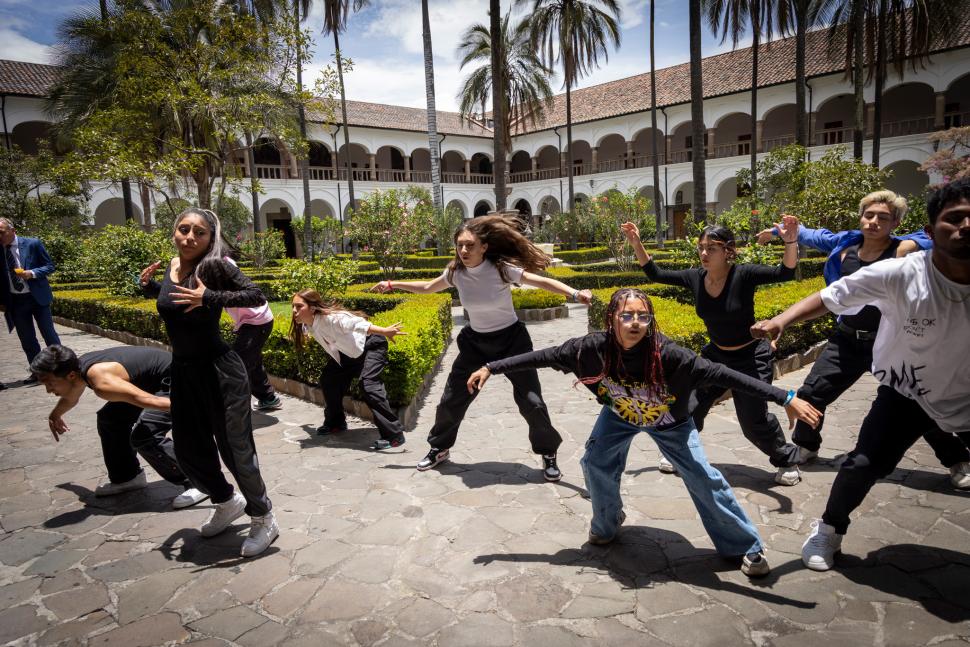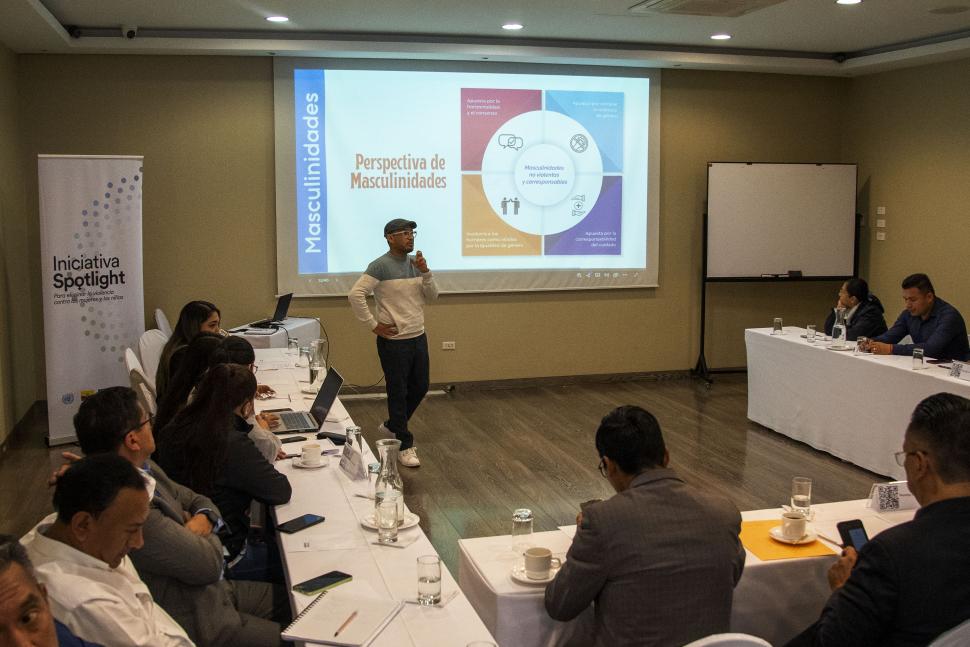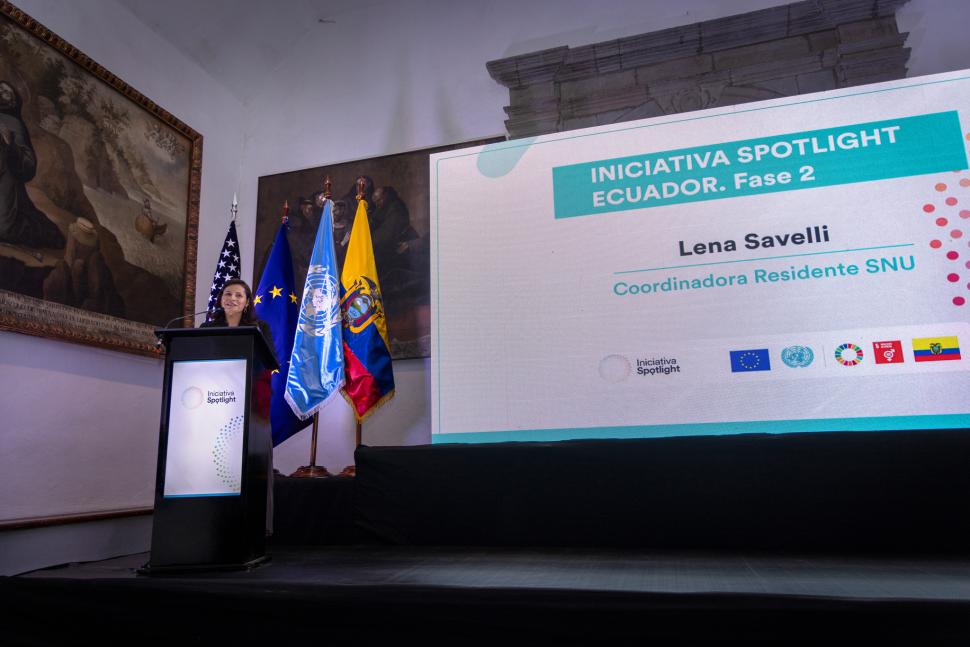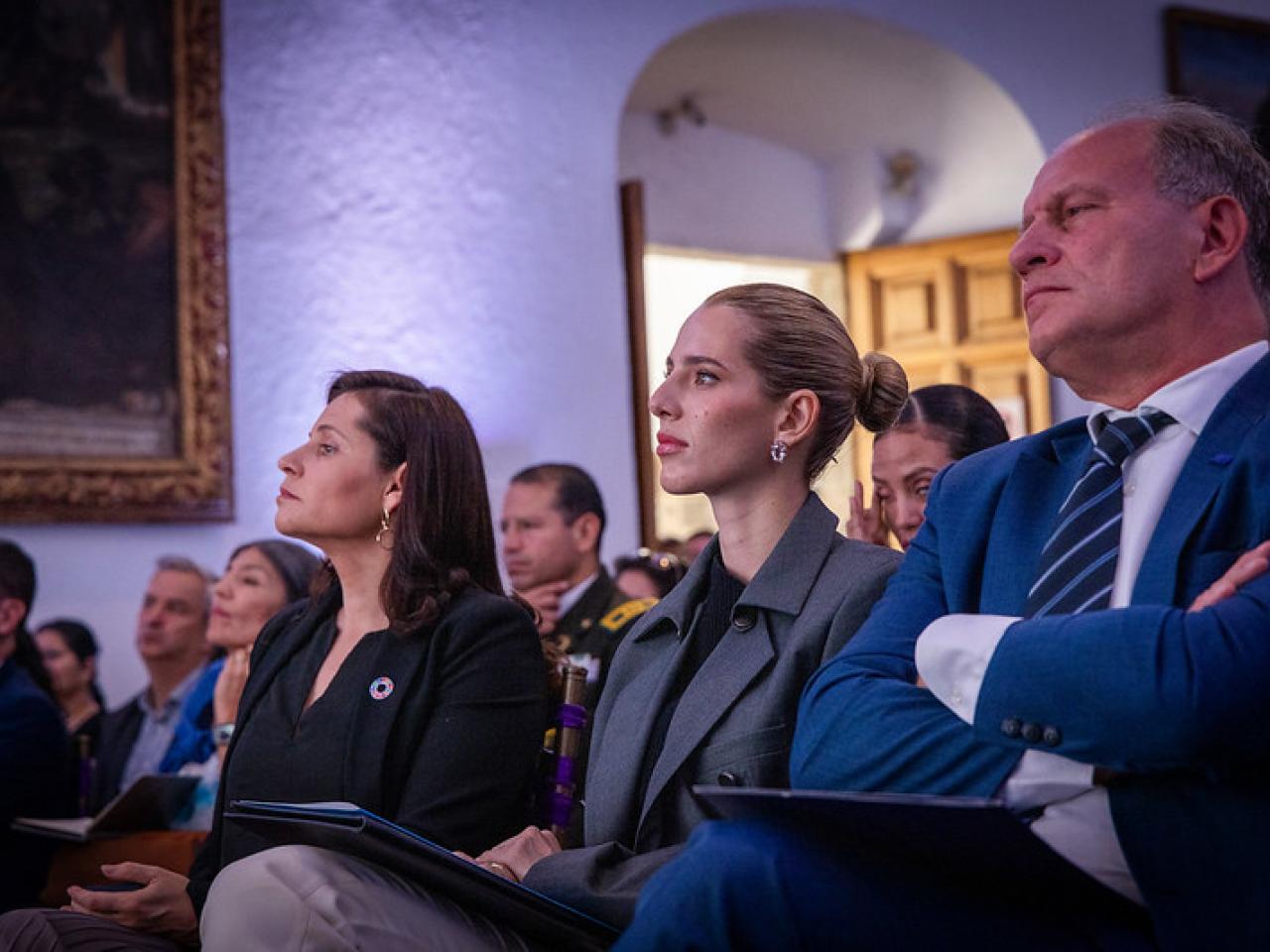Shining a light on gender-based violence in Ecuador
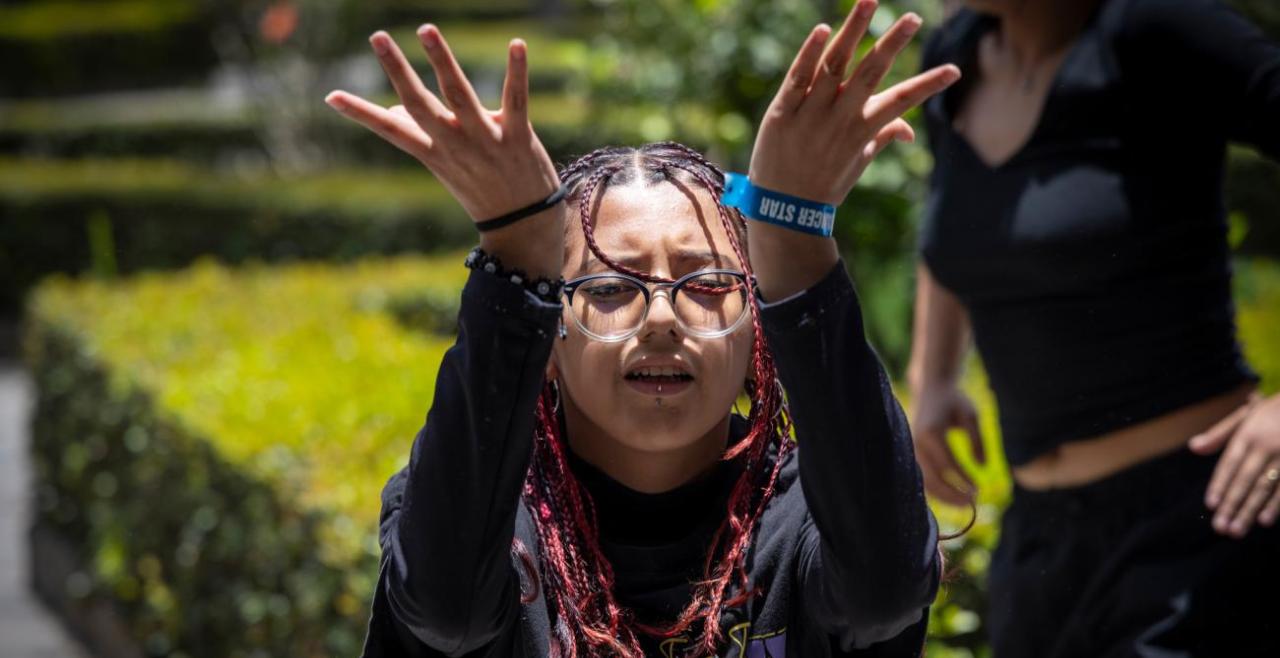
QUITO, Ecuador - “Sixty-five per cent of women in Ecuador have suffered some form of violence during their life.” When I arrived in Ecuador in 2020 to take up the position as UN Resident Coordinator, this was one of the first statistics that I memorized, simply because it struck me as almost unbelievable. Sixty-five per cent, means 2 out of 3 women, probably the fourth highest figure of gender-based violence in the region.
Since then, I have spent countless hours deepening my understanding of the situation. I learned from national authorities that a woman is killed every 26 hours in the country, often at the hands of a family member or an intimate partner. From women’s organizations, I understood the challenges in implementing the 2019 Organic Law for the Prevention and Eradication of Violence Against Women, including the lack of inter-institutional coordination, data, training and resources. And in emotional sessions with survivors of violence and families of victims of femicide, I learned how stereotypes and cultural practices fuel the problem, making all women vulnerable, regardless of social class, ethnicity or age. It was clear the violence deeply impacted women and their families. But the issue also undermined society as a whole and the achievement of the Sustainable Development Goals (SDGs) in Ecuador.
From awareness to action
Understanding the need for urgent, coordinated and decisive engagement to turn the tide, I leveraged my role leading the work of the UN in Ecuador, calling for concrete, sustainable and tangible actions. I spearheaded dialogues with government leaders, civil society, and survivors to elevate gender-based violence as a national priority. I also forged partnerships with international donors, advocating for funding that could be leveraged to tackle the systemic roots of violence and its devastating daily consequences. This wasn’t just about policies; it was about ensuring every survivor’s voice shaped our response. UN agencies mobilized around a shared strategy, and we worked tirelessly with our partners to mainstream the issue into Ecuador’s political agenda.
Our UN team proposed concrete, implementable solutions, notably with the national launch of Spotlight Initiative, a global partnership between the European Union (EU) and the United Nations, focused on eliminating all forms of violence against women and girls. In Ecuador, UN Women, the UN Population Fund (UNFPA) and the UN Development Programme (UNDP) work together to implement this programme, which contributed to shaping laws and policies tackling gender-based violence.
The initiative also contributes to boosting the skills and resources of national authorities and civil society groups, developing mechanisms harnessing the power of data to deliver progress. For example, the UN has supported the development of the “Single Registry for Violence,” a tool that collects data on violence against women and activates an early warning system that identifies high-risk cases in real time and automatically alerts police, social services, and judicial authorities to intervene swiftly. To tackle the high rates of impunity, the UN has worked with judicial authorities to develop protocols to investigate femicides, strengthened capacities of the police to collect evidence and improved services to survivors of violence.
Spotlight Initiative has also prioritized work aimed at preventing gender-based violence, launching important communication campaigns to change deep-rooted misogynistic beliefs and behaviours. To effectively reach all segments of the diverse Ecuadorian society, innovation was key. Spotlight worked through community radio, television and digital platforms in multiple languages, partnered with famous musicians, influencers, football teams and private sector companies. Dance troupes launched flash mobs in public spaces.
This communication and advocacy work engaged more than 17 million people at the national and regional level. Working with youth organizations, universities and media companies, Spotlight Initiative also promoted important discussions on gender, equality and masculinity that aim to sensitize the problem of gender-based violence, prevent violence and honour the memory of survivors and victims.
Spotlight Initiative 2.0
Personally, I am deeply invested in the Spotlight Initiative. I coordinated the work of the agencies and co-chaired the Steering Committee. I used my voice and platform as the highest-ranking UN official on the ground, representing the Secretary-General on development issues, to become a visible champion for gender equality and a trusted ally for women’s organizations and human rights defenders. I blogged about my visits to women’s shelters, and I advocated with national authorities and international partners to mobilize political will and resources.
Our collective engagements bore fruit: in February 2024 Ecuador was the first country in Latin America to launch Spotlight 2.0, a second phase of the Initiative, which raised nearly $3 million from EU and other partners. At the launch event, I was proud to share the stage with civil society leaders, Ambassadors, parliamentarians, Government Ministers and the First Lady of Ecuador – a powerful sign of the political significance now attached to gender-based violence and a reaffirmation of the whole-of-society approach needed to address it.
Adapting to new threats
Building on the foundations of these hard-earned gains, our work continues. The dramatic increase in drug-related violence and insecurity that has plagued Ecuador over the past few years is exacerbating the challenge we face in tackling gender-based violence. Unfortunately, women and girls are, once again, deeply affected. In addition to increases in femicides, a study by UN Women shows that women and girls are increasingly at risk of other forms of violence and coercion, including forced recruitment into criminal gangs, human trafficking and sexual exploitation. In the second phase of Spotlight Initiative, our UN Ecuador team is mobilizing to adapt to this new context and new challenges. The promise of a world free of violence for women and girls can wait no longer. Count me in to lead the charge.
Written by UN Resident Coordinator in Ecuador Lena Savelli. Read more coordination results from the UN in Ecuador here.

